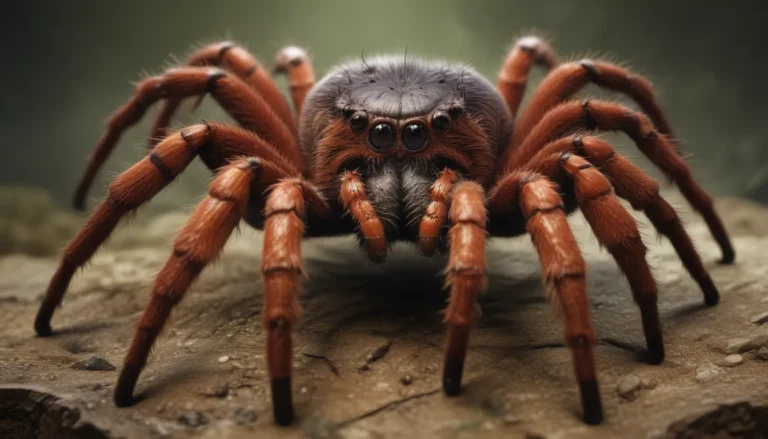The pictures we use in our articles might not show exactly what the words say. We choose these pictures to make you interested in reading more. The pictures work together with the words but don’t take their place. The words still tell you the important facts.
Budgies, also known as parakeets, are delightful avian companions that have captured the hearts of bird enthusiasts worldwide. Originating from Australia, these small, colorful birds are renowned for their vibrant colors, playful nature, and remarkable ability to mimic human speech. Whether you are a proud budgie owner or simply fascinated by these feathered friends, there are plenty of interesting facts to uncover about these intelligent and social creatures. In this article, we will delve into 19 fascinating facts about budgies, shedding light on their unique characteristics, behavior, and lifestyle.
Discovering the Charms of Budgies
- Budgies, also known as parakeets, belong to the parrot family and are native to Australia.
- These small, colorful birds can live for about 5 to 10 years, with some individuals reaching up to 15 years or longer with proper care.
- Budgies are highly social creatures, forming strong bonds with their human owners or other budgies.
- Known for their ability to mimic and learn various sounds, budgies can be trained to perform tricks and even imitate human speech.
Understanding the World of Budgies
The Social and Intelligent Budgie
Budgies are extremely social birds that thrive on companionship. They are known for their playful and interactive nature, often forming close bonds with their owners or other budgies. Their intelligence and ability to mimic sounds make them fascinating and engaging pets. With patience and training, budgies can learn to perform tricks, retrieve objects, and even speak simple words.
The Colorful World of Budgies
Budgies come in a wide range of colors, including shades of blue, green, yellow, and white. Their vibrant plumage adds a touch of beauty to any home, creating a lively and colorful atmosphere. Different patterns and mutations contribute to their unique appearances, making each budgie distinct and special in its own way.
The Agile Flyers
With their small and agile bodies, budgies are skilled flyers. They exhibit acrobatic flight patterns, making quick turns and twists in the air. Their agility and grace in flight showcase their natural abilities as adept aviators, maneuvering effortlessly through the air with precision and speed.
The Communicative Creatures
Budgies use body language to communicate their emotions and intentions to others in their flock. Through various movements such as head bobs, wing flapping, and beak grinding, they express their feelings and establish social connections with their companions. Understanding their body language can help owners interpret their budgie's needs and emotions more effectively.
The Cheerful Chatterers
Budgies are highly vocal creatures with a wide range of chirps, tweets, and squawks. Their cheerful chatter adds a lively and vibrant atmosphere to any home, creating a sense of joy and companionship. Listening to their melodic tunes and playful calls can be a delightful experience, showcasing their sociable and engaging nature.
The Skilled Problem Solvers
Despite their small size, budgies possess impressive problem-solving abilities. They can figure out how to access food sources, manipulate objects, and navigate obstacles with ease. Their intelligence and resourcefulness make them adept at solving puzzles and challenges, showcasing their clever and adaptive nature.
The Affectionate Pair Bonding
Once budgies form a bond with a mate, they tend to remain monogamous. Engaging in activities like preening each other and sharing food, they strengthen their pair bond and establish a deep connection with their partner. This monogamous behavior demonstrates their loyalty and commitment to their chosen mate, fostering a sense of love and companionship within their flock.
The Care and Keeping of Budgies
- Budgies have a primarily herbivorous diet consisting of seeds, grains, fruits, and vegetables.
- Providing a balanced and varied diet is essential to meet their nutritional needs and ensure their optimal health.
- Regular veterinary check-ups are important to monitor their health and well-being and address any potential issues promptly.
- Offering a spacious and stimulating environment with toys, perches, and activities can keep them mentally and physically engaged.
- Supervised interaction with children is recommended to ensure the safety and well-being of the bird and promote a positive relationship between the budgie and the child.
Conclusion: Embracing the World of Budgies
In conclusion, budgies are fascinating creatures that bring joy, companionship, and vibrant energy to any household. Their intelligence, social nature, and colorful plumage make them captivating pets that enchant bird enthusiasts around the world. By understanding their behavior, needs, and characteristics, owners can forge a strong bond with their budgie and embark on an incredible journey together. Remember, caring for a budgie involves providing them with proper nutrition, a stimulating environment, and regular veterinary care. Whether you are a seasoned budgie enthusiast or considering welcoming one into your home, these 19 facts about budgies highlight the charm and allure of these small parakeets.
FAQs: Exploring More About Budgies
- How long do budgies live?
-
Budgies typically have a lifespan of 5 to 10 years, with some living up to 15 years or longer with proper care.
-
Do budgies require a specific diet?
-
Yes, a balanced diet consisting of seeds, fruits, vegetables, and occasional treats is essential for their optimal health.
-
Can budgies learn to talk?
-
Yes, with patience and training, budgies can mimic human speech and learn a variety of words and phrases.
-
Are budgies social animals?
-
Budgies are highly social creatures that thrive on companionship, enjoying interactions with both their human owners and other budgies.
-
How can I create a stimulating environment for my budgie?
-
Provide your budgie with plenty of toys, perches, and activities to keep them mentally and physically engaged. Regularly changing toys and rearranging the cage can prevent boredom.
-
Can budgies be trained?
-
Yes, budgies are intelligent birds that can be trained using positive reinforcement techniques. They can learn tricks, commands, and basic obedience.
-
Do budgies require a specific type of cage?
-
It is recommended to provide budgies with a spacious cage that allows them to fly and move comfortably. Horizontal bars for climbing are beneficial for their well-being.
-
Are budgies good pets for children?
-
Budgies can make great pets for children, but adult supervision is necessary to ensure the bird's safety and well-being.
-
Can budgies be kept alone or do they require a companion?
-
While budgies are social birds, they can be kept alone with proper interaction and stimulation from their owners.
-
Are budgies prone to any health issues?
- Some common health problems in budgies include respiratory infections, mites, and obesity. Regular veterinary check-ups are essential to monitor their health and address any health concerns promptly.
Embrace the enchanting world of budgies with these fascinating facts and insights, and discover the joy and wonder that these delightful feathered companions bring into your life. Whether you're a seasoned budgie enthusiast or a newcomer to the world of pet birds, the charm and allure of budgies are bound to captivate and inspire you on your avian adventure. Enjoy the vibrant colors, cheerful chatter, and playful antics of these small parakeets as you forge a special bond with your budgie and create cherished memories together!






